System implementations are about reshaping behavior, bridging silos, and shifting mindsets.
In her Propel25 session, "The influence playbook: Driving system adoption through smart conversations," Jenn Brantmier, Principal Consultant at CLV Consultants, shared a refreshingly candid take on the art and science of internal adoption.
Drawing from her hands-on experience in professional services and operations across hospitality, healthcare, and real estate, Jenn unpacked how influence, not authority, drives meaningful adoption.
This recap draws on the strategies discussed to present a broader thought-leadership perspective on how implementation and professional services leaders can embed change more effectively.
In this article
- Common objections to change: Understanding the hidden barriers
- Change conversations: The power of repetition, empathy, and presence
- Understanding objections: Emotional costs > Technical barriers
- A blueprint for change: Lessons from implementation leaders
- Continuous iteration: What comes after go-live
- Key takeaways for implementation leaders
Common objections to change: Understanding the hidden barriers
In any implementation initiative, recurring objections emerge time and again. Recognizing them is the first step toward overcoming them:
Change is hard
Emotional resistance is real. People aren’t just reluctant. They're protective of what they know. Leaders must treat resistance as a source of insight instead of viewing it as an annoyance.
Adoption is hard
Tools may be intuitive, but change is not. Success hinges on scaffolding adoption with training, reinforcement, and cross-functional clarity.
Change is expensive
It’s not just budget lines; it’s also time, morale, and perceived risk. Highlighting the long-term ROI and opportunity cost of stagnation is essential.
Integrations are hard
Complexity may stem from differing processes, data formats, and ownership. Bridging teams becomes as crucial as APIs.
Conflicting interests
When KPIs clash, alignment dies. Bringing departments into the design process helps surface and negotiate these trade-offs early.
Collaboration isn’t valued
If the culture doesn't reward cross-functional wins, adoption suffers. Leaders must reinforce shared success stories.
These objections aren’t blockers; they’re diagnostic signals. The role of an implementation leader is to decode and address them with empathy and precision.
Change conversations: The power of repetition, empathy, and presence
Effective system adoption is less about one-time alignment and more about consistent influence. Four conversation tactics stand out:
Talk a lot
Visibility is everything. Implementation leaders must normalize open dialogue around objections and progress across all channels.
Be a broken record
Repetition creates familiarity. Reinforce key benefits and workflows frequently so they embed into daily habits.
Find your friends
Champions within teams multiply your influence. Identify them early, equip them with context, and celebrate their wins.
Unfamiliar to familiar
Analogies and anchors help reduce cognitive friction. Frame new features in terms of familiar tasks or legacy tools.
Above all, listen. Not passively, but actively and inquisitively. The small frustrations people voice often point to deeper misalignments or missed opportunities.
Conversations are the currency of change. The more intentional and widespread they are, the smoother the path to adoption.
Understanding objections: Emotional costs > Technical barriers
Objections to new systems usually wear rational disguises but stem from emotional realities:
Sunk cost
People feel personally invested in legacy processes. Change feels like invalidation. Leaders must honor past work while advocating for evolution.
Comfort
Familiarity breeds speed and confidence. Replacing it without sufficient support triggers defensiveness and delays.
Disruption
Even rare outages or reconfigurations can create fear. Transparent communication and contingency planning help build resilience.
Time
Everyone’s overloaded. Asking for time without clarifying the purpose and benefit breeds resentment.
Ego
Systems reset power dynamics. Going from expert to novice hurts pride. Training that builds confidence, not just competence, is critical.
Tactical takeaway
Map objections back to emotions. When implementation leaders validate feelings while removing friction, they earn trust and accelerate adoption.
A blueprint for change: Lessons from implementation leaders
Smart system adoption begins long before the first login. A proven playbook includes:
- Start by listening: Early immersion in team dynamics and processes builds empathy and credibility.
- Plant strategic seeds: Use micro-moments to propose helpful shifts from documentation to processes to role clarity.
- Engage external voices: Customer insights and expectations can reframe internal resistance and elevate urgency.
- Reframe language: Swap rigid answers for expansive ones. "Yes, and…" opens doors. "No, but…" shuts them.
- Quantify value: Metrics speak louder than assumptions. Usage data, reduced workload, and improved visibility make the ROI case tangible.
- Empower your teams: The most effective system rollouts happen when the people using the tool every day are given the agency to shape and evolve it. Distributed ownership unlocks creativity and sustainability.
Continuous iteration: What comes after go-live
Implementation success doesn’t stop at launch. Sustained value requires iteration:
Plan for v2 from day one
Setting expectations for continuous improvement builds patience and reduces pressure.
Track outcomes, not just activities
Adoption metrics, time saved, and customer satisfaction scores tell a compelling story.
Find off-label opportunities
A well-implemented system often solves more problems than expected. Be open to those use cases.
Rocketlane, when fully embedded, becomes more than a PSA platform. It evolves into an operational command center from CRM and billing to project planning and customer engagement.
Key takeaways for implementation leaders
Adoption isn’t a process problem. It’s a people problem.
Understand the human side of objections. Technical solutions only work when emotional barriers are addressed.
Talk more, not less.
Be the broken record. Relationships and repetition build trust and normalize change.
Start with influence, not authority.
Win over allies and skeptics through empathy and strategic listening. Mandates rarely stick.
Use metrics to make your case.
Data changes the conversation from opinion to evidence. Make insights visible.
Plan for v2.
System adoption is a journey, not a single milestone. Iteration invites ongoing engagement.
Smart, empathetic conversations are the real drivers of system adoption. Want more insights like this? Check out the Propel25 sessions here.


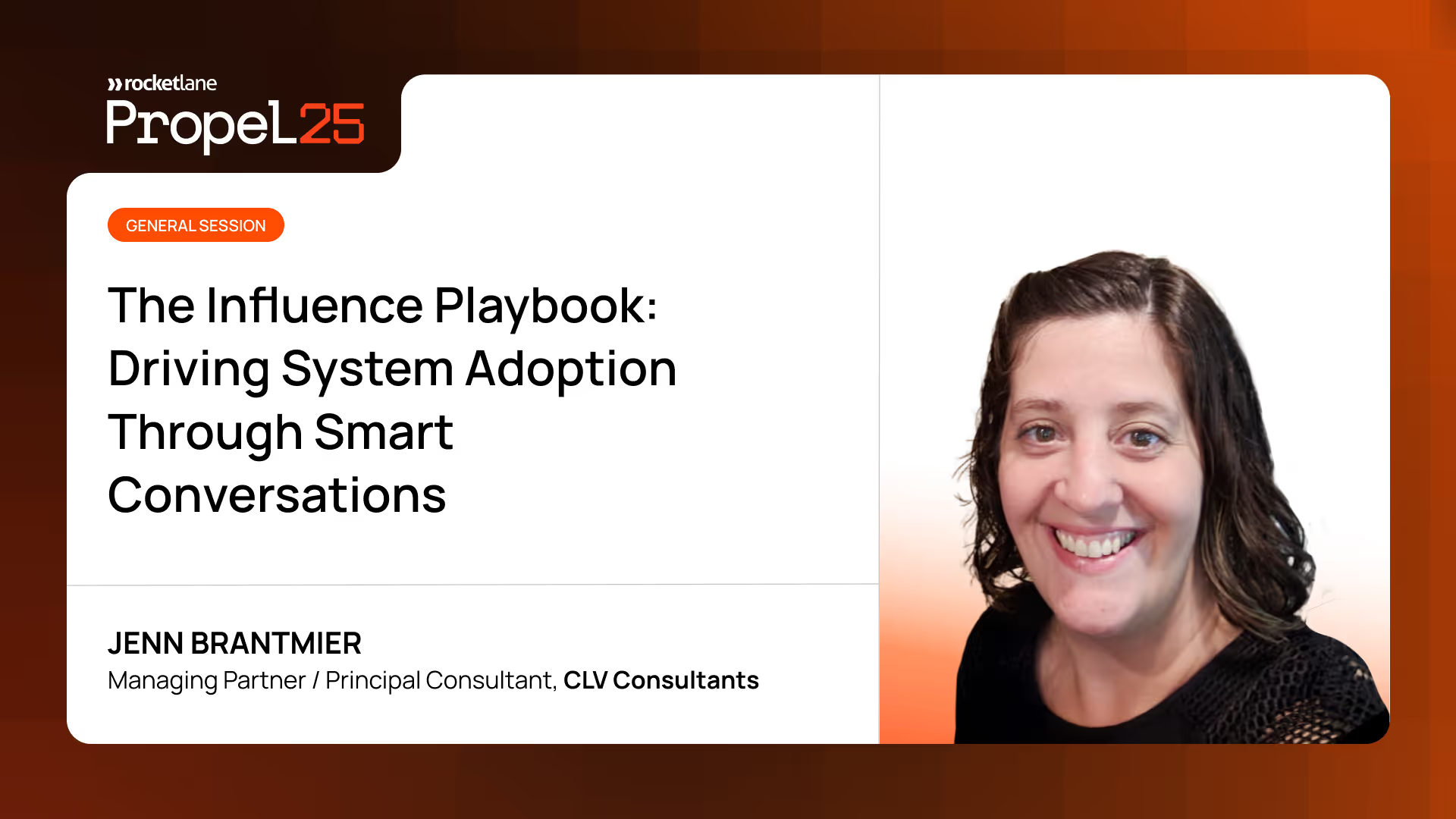

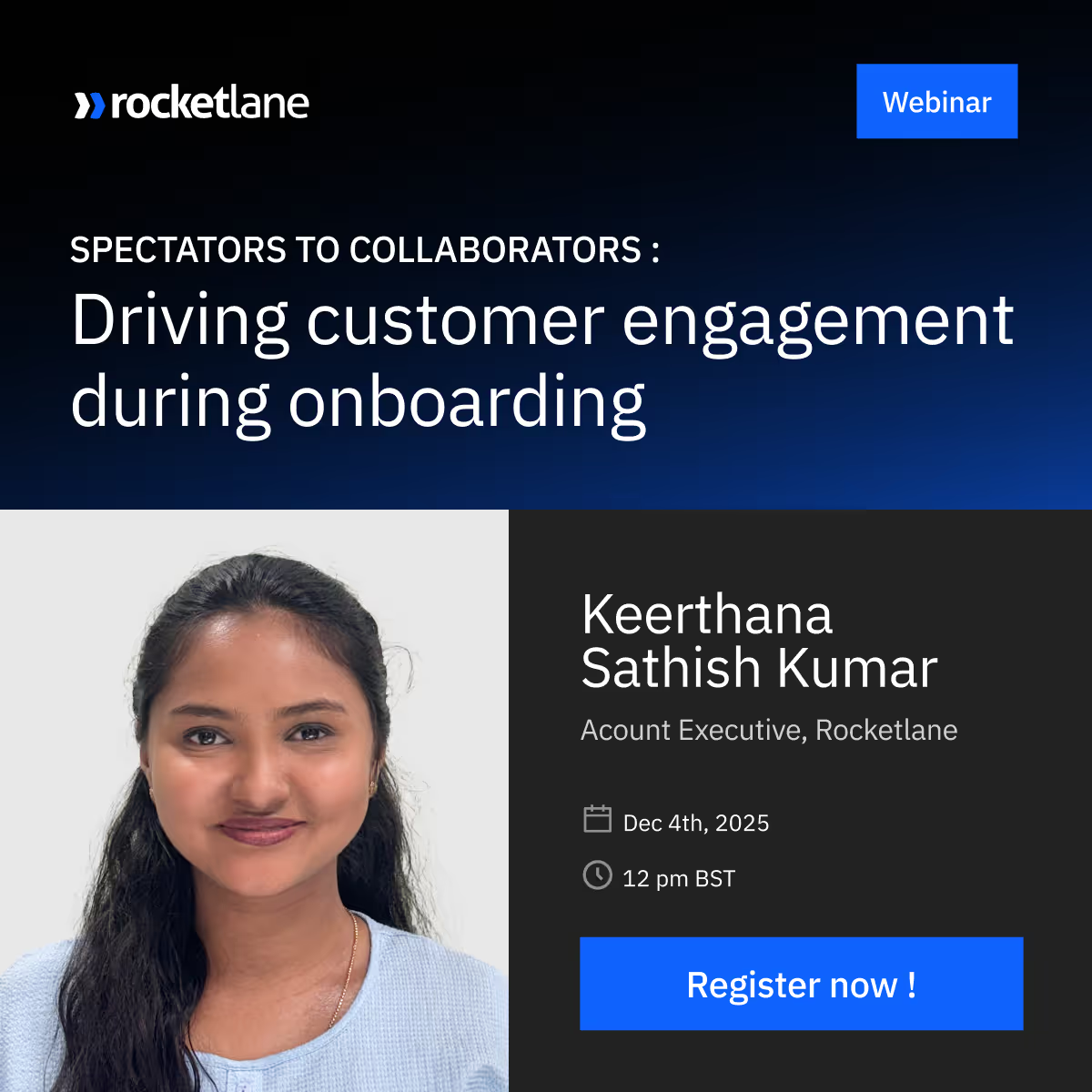
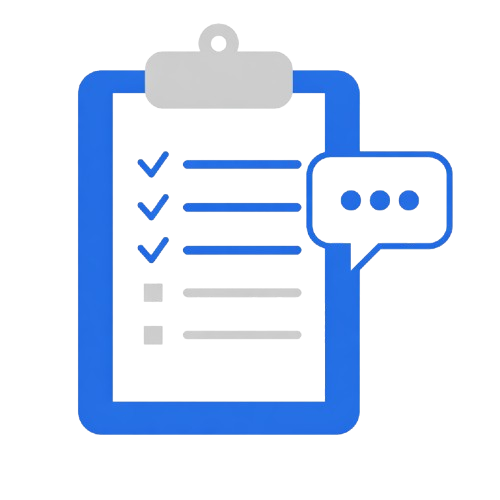















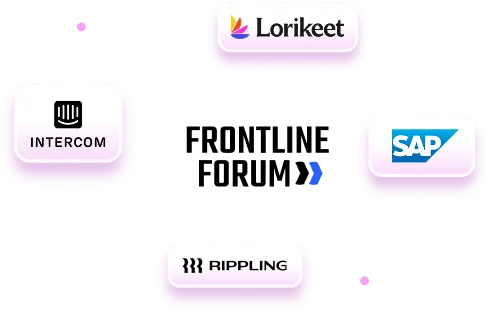
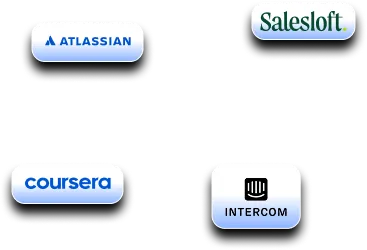


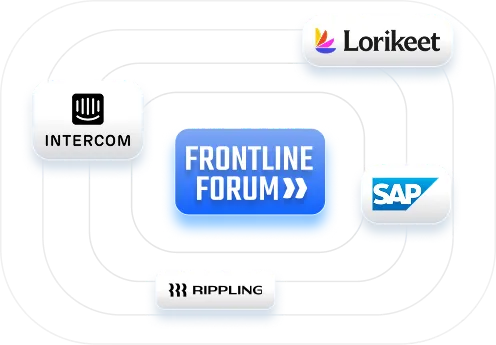
.webp)